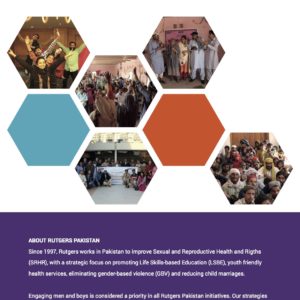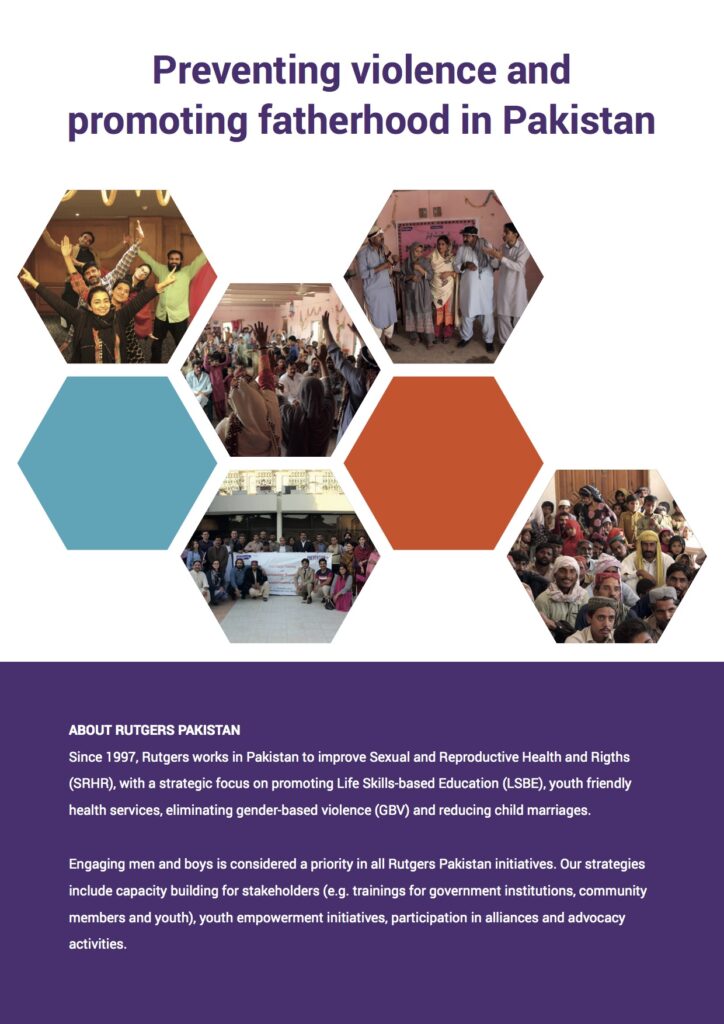This Prevention+ case study highlights the work to engage men and boys in the Rutgers Pakistan initiatives. Strategies include capacity building for stakeholders (such as trainings for government institutions, community members and youth), youth empowerment initiatives, participation in alliances and advocacy activities. A fatherhood campaign was conducted across Pakistan to encourage the transformation of negative gender norms to prevent GBV and to promote the rights of all women and girls.
Prevention+ is a five-year, multi-country program that envisions a world where healthy, respectful, and equal relationships are the norm. To contribute to making this a reality, the program addresses the root causes of gender-based violence: the social, economic, religious, and cultural contexts that shape attitudes and behavior that lead to violence. Prevention+ takes a multi-level approach in order to ensure long-lasting impact, and to transform the mutually reinforcing social and structural factors that support gender-based violence (GBV) and allow it to persist. The program actively engages young and adult men as partners and advocates for change – alongside young and adult women – to challenge and transform harmful gender norms and practices.
View the other Prevention+ case studies here: Indonesia, Lebanon, Rwanda, and Uganda. Prevention+ is led by a consortium of Rutgers, Sonke Gender Justice, and Equimundo, and funded by the Dutch Ministry of Foreign Affairs.

